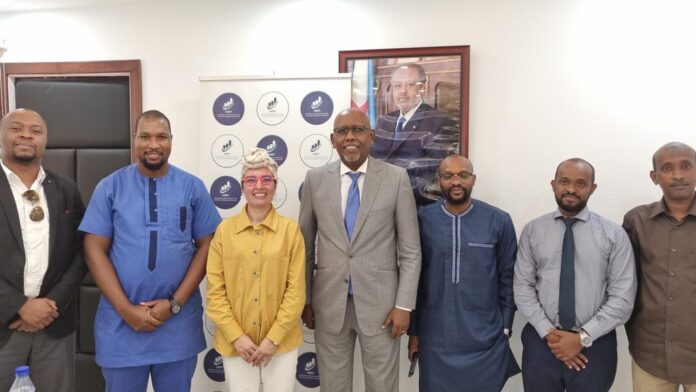ABIDJAN, Ivory Coast (KAAB TV) – The African Development Bank (AfDB) commenced the implementation of the Integrated Urban Infrastructure and Climate Adaptation Study Project in Djibouti city, Djibouti last month. This initiative aims to enhance access to resilient urban infrastructure and basic services while promoting inclusive and participatory urban planning and management, with a focus on addressing gender disparities.
The project, funded by a $3.8 million grant from the African Development Fund, the Bank Group’s concessional lending window for low-income African countries, is set to span three years from 2023 to 2025. The Djibouti Roads Agency has been entrusted with the responsibility of executing the project.
During the launch event, a delegation engaged in separate discussions with Djibouti government officials, shedding light on the African Disaster Risk Management Financing Program (ADRiFi) and its potential benefits. In meetings with Djibouti’s Finance Minister and Governor of the Bank, Ilyas Moussa Dawaleh, the delegation outlined the objectives and components of the ADRiFi program, emphasizing its ability to enhance flood risk mitigation in Djibouti.
Additionally, the program aims to strengthen the capacity of national stakeholders involved in disaster risk management and facilitate the development of a national disaster risk financing strategy. Minister Dawaleh expressed his support for Djibouti’s involvement in the program, highlighting its potential to enhance the country’s resilience.
Similar discussions took place with Djibouti’s Minister of Infrastructure and Equipment, Hassan Houmed Ibrahim, who actively participated in the fruitful deliberations.
In February 2023, the African Development Bank adopted a new 2023-2027 Country Strategy Paper (CSP) for Djibouti, signaling its commitment to fostering inclusive growth through accelerated structural transformation and economic diversification.
The CSP places significant emphasis on the development of socio-economic infrastructure in the energy and transport sectors. This includes initiatives to improve mobility, promote trade, and expand the production and distribution of cleaner and more affordable energy.
As of May 31, 2023, the African Development Bank’s active portfolio in Djibouti amounted to $87 million, supporting 11 projects across various sectors such as transport, energy, social services, governance, and agriculture.
With these comprehensive endeavors, the African Development Bank is working in partnership with Djibouti to bolster the country’s infrastructure, enhance climate resilience, and foster sustainable economic growth for the benefit of its people.


